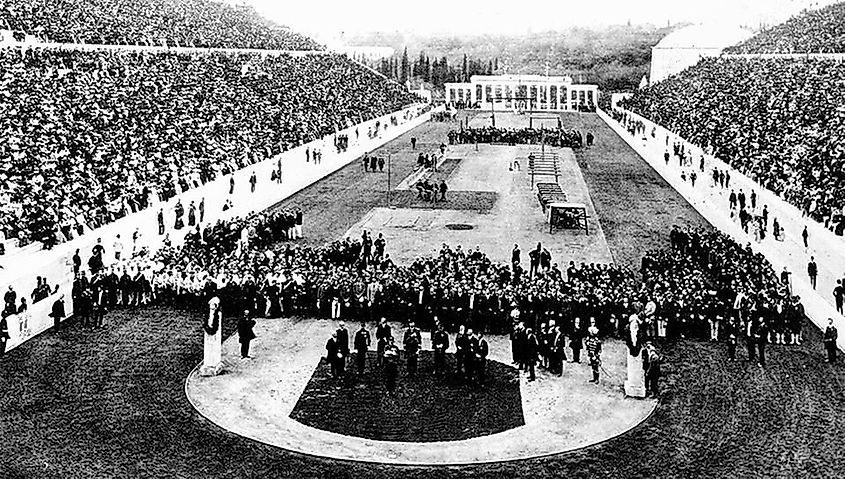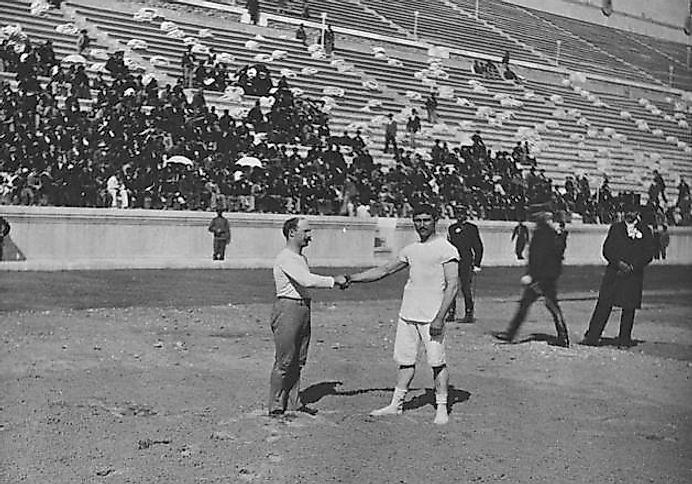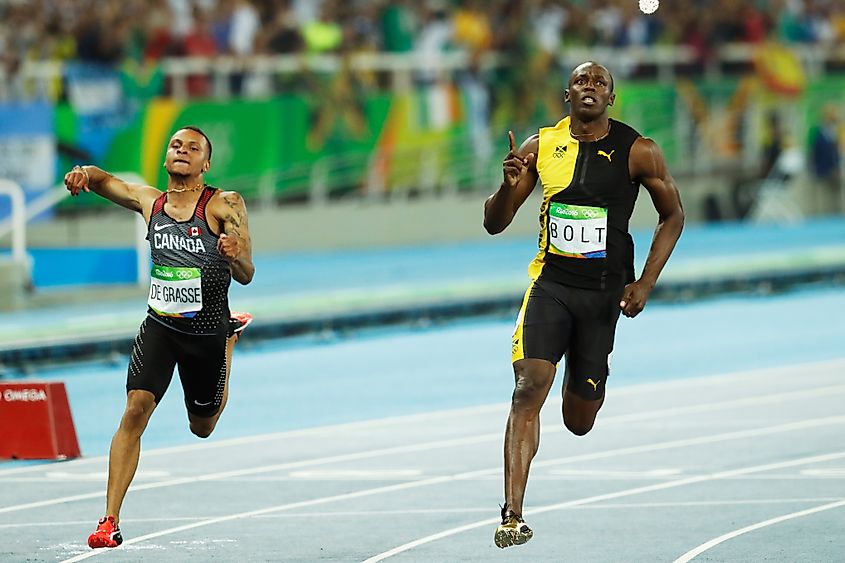
How Often Are The Olympics?
Every time the Olympic Games are held, the world is captivated by the spectacle. Thousands of athletes from every country all gather in an exhibition of dedication, skill, and athleticism. As it stands right now, the Olympic Games are only held once every two years. But this was not always the case.
The Origins Of The Olympics

As many know, the Olympic Games first originated in Ancient Greece. Just as it is today, the games in ancient times were a chance for the best athletes in the Greek world to come and compete against one another in various sports and events.
Not only were the athletes competing for their own sense of glory and honor, but they were also attempting to win for the reputation of their city. Greece at the time was far from the unified country that we know today. There were hundreds of independent city-states within Greece, Asia Minor (modern-day Turkey), Southern Italy, and all across the Mediterranean.
The Olympics were held every four years and often took place between the months of April and September. This was done to avoid any potential bad weather as all of the events were held outdoors. It is important to note that the ancient Olympics did not include winter sports like we have today and were limited to the classical sports of wrestling, boxing, track and field, and chariot racing.
There was a major religious component to the Olympics in ancient times as well. While it was still of course about a celebration of the best athletes in the Greek World, it was also a way to honor the Greek god Zeus, who they believed lived at the top of Mount Olympus. Other deities within Greek mythology were also worshiped during the games as well.
The participants in the Olympics were often not just part-time athletes either. Even in Ancient Greece, there existed professional athletes who trained tirelessly to hone their craft and become the best they could be. The four-year gap allowed these athletes ample time to train and prepare. It also elevated the Olympics above other regional competitions that would be held much more regularly.
The Modern Olympics Take Shape

The ancient Olympic Games were brought to an end by the Roman Emperor Theodosius I in 393 AD as he felt the games were too much rooted in pagan belief. As the Roman Empire had recently adopted Christianity as its official religion, things that had ties to Roman or Greek polytheism were viewed with suspicion or outright hostility.
Despite the ban, Christian Europe never truly lost its fascination with the Olympics. Throughout the Middle Ages and the Early Modern Era, there was still considerable interest among monarchs and the educated elite.
At the dawn of the 19th century, there was an explosion of interest surrounding Antiquity, especially Ancient Greece and Rome. The various European empires that existed at the time saw Rome and Greece as the birthplace of Western Civilization which they owed much of their prestige and success.
Throughout the 19th century, there were multiple attempts to reignite the games once again. While the early attempts failed, this finally materialized in 1896 when the first modern Olympic Games were held in Athens, Greece.
The First Summer Olympics

The first modern Olympics was a resounding success. However, this time it did not just capture the attention of a few Greek city-states, but much of the world. With modern newspapers and vast improvements in transportation technology, both the athletes and information about the games could travel much easier than before.
In keeping with tradition, it was agreed that the newly founded Olympics were to be held every four years. Similar to Ancient Greece, the first handful of Olympics such as events and sports were traditionally held during the summer months.
There were new events added of course. Tennis, fencing, and cycling were all fan favorites that had not existed previously. As the years progressed, even more events were added. The Olympics would expand in 1924 and introduce the first-ever Winter Olympics.
The Dawn Of The Winter Olympics

The first Winter Olympics were held in Chamonix, France in 1924. This gave the opportunity to countries that tended to have a colder climate the chance to excel and compete in events like skiing and hockey.
The addition of the Winter Olympics kept the same four-year gap as the Summer Games and was held in the same year. The Winter Games were typically held in January which was then followed up by the Summer Games during the warmer months.
Sports fans from around the world were now treated to two separate Olympics in the same year. While this did create a lot of buzz, there were some issues. The Winter Games were often regarded as less important the the Summer Games and hosting them within the same year tended to take some of the interest away. Despite the shortcomings, the Olympics kept with tradition until it was finally decided to change course in 1994.
The Modern Format

Starting in 1994, it was agreed that the Summer and Winter Olympics would staggered so there would be some version of the Olympics being held every two years. This still kept with tradition and allowed a four-year gap between each Olympics but also let the Winter Games not be overshadowed.
It also saved the host cities and Olympic committees the massive headache of trying to organize the gargantuan task of coordinating two separate Olympic Games in a single calendar year. This format proved to be successful and is still in use today. It was also successful in making the logistics of organizing the games easier and also ensured that the Winter Games would no longer be overlooked.
Final Thoughts
Today the Olympic Games, both Winter and Summer, are as big as ever. The new staggered format has proved to be a fantastic addition. The spectacle has ceased to fade. Every Olympics is a massive cultural event and attracts the viewership of millions around the world.











